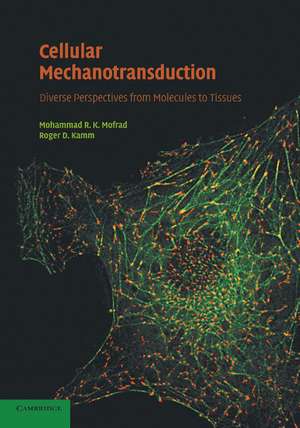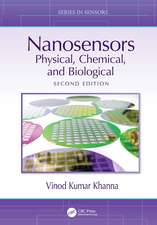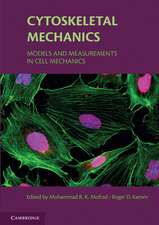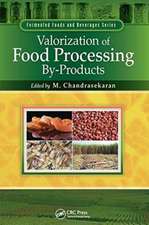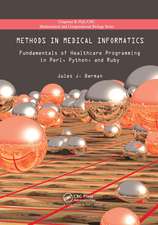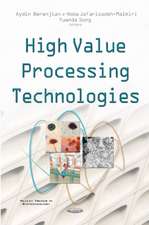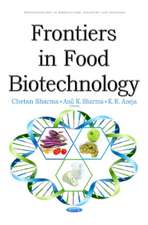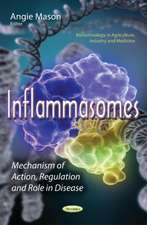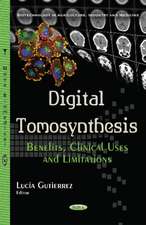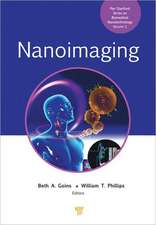Cellular Mechanotransduction: Diverse Perspectives from Molecules to Tissues
Editat de Mohammad R. K. Mofrad, Roger D. Kammen Limba Engleză Paperback – 30 iul 2014
Preț: 594.90 lei
Preț vechi: 668.43 lei
-11% Nou
Puncte Express: 892
Preț estimativ în valută:
113.83€ • 119.17$ • 94.19£
113.83€ • 119.17$ • 94.19£
Carte tipărită la comandă
Livrare economică 05-19 aprilie
Preluare comenzi: 021 569.72.76
Specificații
ISBN-13: 9781107682467
ISBN-10: 1107682460
Pagini: 494
Ilustrații: 240 b/w illus. 8 colour illus. 4 tables
Dimensiuni: 177 x 255 x 25 mm
Greutate: 0.85 kg
Editura: Cambridge University Press
Colecția Cambridge University Press
Locul publicării:New York, United States
ISBN-10: 1107682460
Pagini: 494
Ilustrații: 240 b/w illus. 8 colour illus. 4 tables
Dimensiuni: 177 x 255 x 25 mm
Greutate: 0.85 kg
Editura: Cambridge University Press
Colecția Cambridge University Press
Locul publicării:New York, United States
Cuprins
1. Introduction Roger D. Kamm and Mohammad R. K. Mofrad; 2. Endothelial mechanotransduction Peter F. Davies and Brian P. Helmke; 3. Role of the plasma membrane in endothelial cell mechanosensation of shear stress Peter J. Butler and Shu Chien; 4. Mechanotransduction by membrane mediated activation of G protein coupled receptors and G proteins Yan-Liang Zhang, John A. Frangos and Mirianas Chachisvilis; 5. Cellular mechanotransduction: interactions with the extracellular matrix Andrew D. Doyle and Kenneth M. Yamada; 6. Role of ion channels in cellular mechanotransduction: lessons from the vascular endothelium Abdul I. Barakat and Andrea Gojova; 7. Towards a modular analysis of cell mechano-sensing and transduction: an operations manual for cell mechanics Benjamin J. Dubin-Thaler and Michael P. Sheetz; 8. Tensegrity as a mechanism for integrating molecular and cellular mechanotransduction mechanisms Donald E. Ingber; 9. Nuclear mechanics and mechanotransduction Shinji Deguchi and Masaaki Sato; 10. Microtubule bending and breaking in cellular mechanotransduction Andrew D. Bicek, Dominique Seetapun, and David J. Odde; 11. A molecular perspective on mechanotransduction in focal adhesions Seung E. Lee, Roger D. Kamm and Mohammad R. K. Mofrad; 12. Protein conformational change: a molecular basis of mechanotransduction Gang Bao; 13. Translating mechanical force into discrete biochemical signal changes: multimodularity imposes unique properties to mechanotransductive proteins Vesa P. Hytönen, Michael L. Smith and Viola Vogel; 14. Mechanotransduction through local autocrine signaling Nikola Kojic and Daniel J. Tschumperlin; 15. The interaction between fluid-wall shear stress and solid circumferential strain affects endothelial cell mechanobiology John M. Tarbell; 16. Micro- and nanoscale force techniques for mechanotransduction Nathan J. Sniadecki, Wesley R. Legant and Christopher S. Chen; 17. Mechanical regulation of stem cells: implications in tissue remodeling Kyle Kurpinski, Randall R. R. Janairo, Shu Chien and Song Li; 18. Mechanotransduction: role of nuclear pore mechanics and nucleocytoplasmic transport Christopher B. Wolf and Mohammad R. K. Mofrad; 19. Summary and outlook Mohammad R. K. Mofrad and Roger D. Kamm.
Descriere
This book focuses on the process of stress sensing and transducing mechanical force into biochemical signals.
